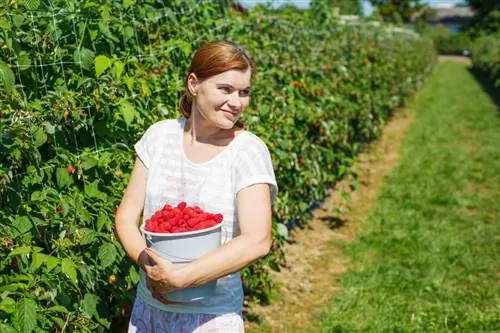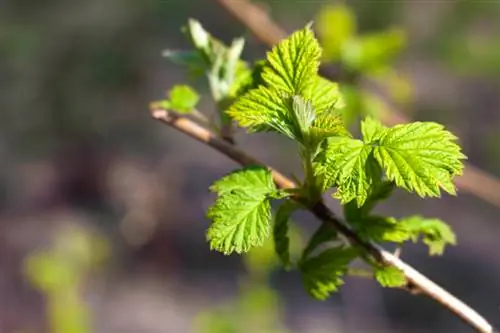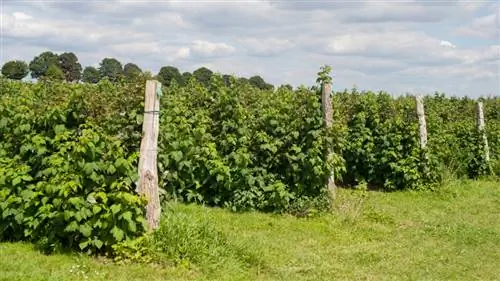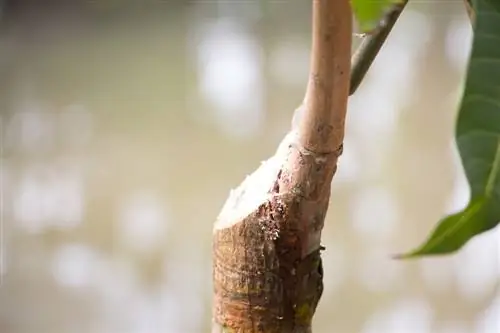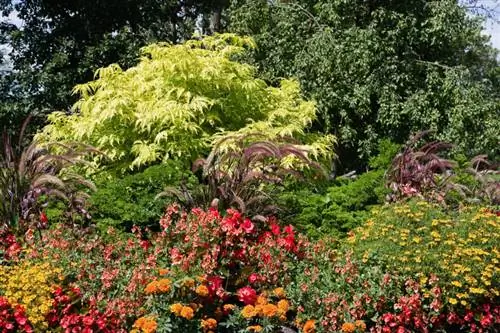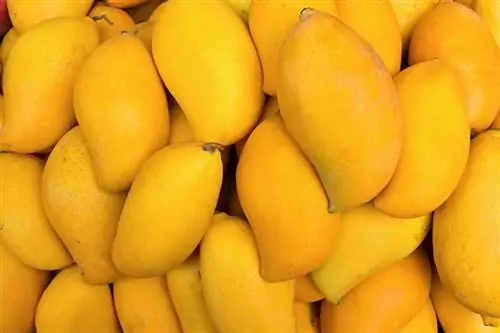- Author admin leonars@hobbygardeners.com.
- Public 2023-12-16 16:46.
- Last modified 2025-01-23 11:19.
Raspberries only produce abundant crops where the soil is nutrient-rich and evenly moist. Mulching is the ideal solution to create an ideal soil climate. At the same time, you ensure that you have less work removing weeds.
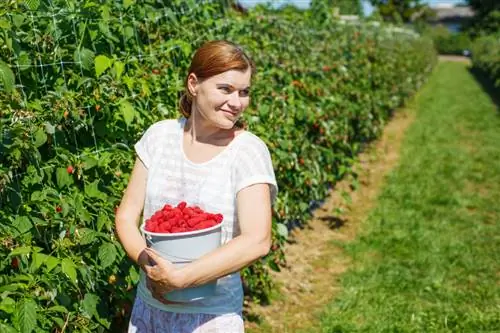
Why and when should you mulch raspberries?
Mulching raspberries helps retain moisture in the soil, add nutrients and reduce weeds. Suitable mulching materials are bark mulch, mature compost, manure, chopped shrub cuttings, lawn clippings, leaves and straw. Mulch fall raspberries in the fall and summer raspberries after harvest.
What does mulching do?
The gardener understands mulching as the spreading of a layer of natural materials on a bed or under bushes.
Garden waste can be used as materials. Bark mulch is particularly suitable for covering the ground.
Mulching raspberries
Mulching proves to be useful in many ways when it comes to raspberries.
The mulch keeps the moisture in the soil, ensures a good supply of nutrients by rotting as fertilizer and keeps the soil loose.
Thanks to the cover, weeds can hardly or hardly emerge under the raspberry bushes. This is important because dense weed growth promotes the dreaded cane disease.
The best time for mulching
The best time for mulching for autumn raspberries is autumn. After cutting back the late varieties, the material is distributed evenly among the bushes. The blanket may be spread two to five centimeters thick.
Summer raspberries are best mulched after pruning in the summer after the harvest. As soon as you have cut back the two-year-old canes, apply the mulch.
In principle, however, you can mulch all year round. If there are lawn clippings or you have shredded bushes, distribute the material immediately among the raspberries.
Good mulching materials
- Bark mulch
- Mature compost
- Rotten manure
- Small chopped shrub cuttings
- Lawn cutting
- Fallen leaves
- Straw
All materials that are natural and rot are suitable for mulching. They release nutrients that significantly improve the soil.
Artificial mulch blankets are available from specialist retailers. They are made of fleece or similar materials. This material also rots over time, but is not as nutrient-rich as bark mulch etc. These blankets are primarily used to prevent weed infestation and to protect against drying out.
Tips & Tricks
Never use mulching materials from diseased plants. Contaminated mulch spreads the diseases to the bushes. You should also not use plant material that is already flowering. It germinates on the ground and creates additional weed growth.

